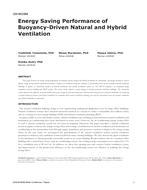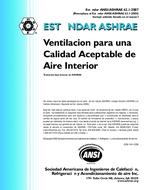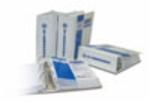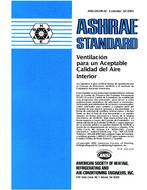Description
This paper presents the energy saving performance of buoyancy-driven natural and hybrid ventilation on simulations, and design methods to achieve effective energy saving without operational problems. Studies were conducted using two methods: 1) fact-finding survey on the existing naturally ventilated buildings in Japan, 2) simulation analysis of natural ventilation and hybrid ventilation system by “The BEST program”, an integrated energy simulation tool for building and MEP system. The survey results showed a system design in existing naturally ventilated buildings. The simulation results indicated the influence of control method and system design on total operating hours and heat-load removal rate of natural ventilation. In conclusion, a control method of natural and hybrid ventilation in accordance with natural ventilation opening area and the operational issues for natural ventilation and hybrid ventilation are presented.
Citation: 2018 Winter Conference, Chicago, IL, Conference Papers
Product Details
- Published:
- 2018
- Number of Pages:
- 8
- Units of Measure:
- Dual
- File Size:
- 1 file , 1.6 MB
- Product Code(s):
- D-CH-18-C004




